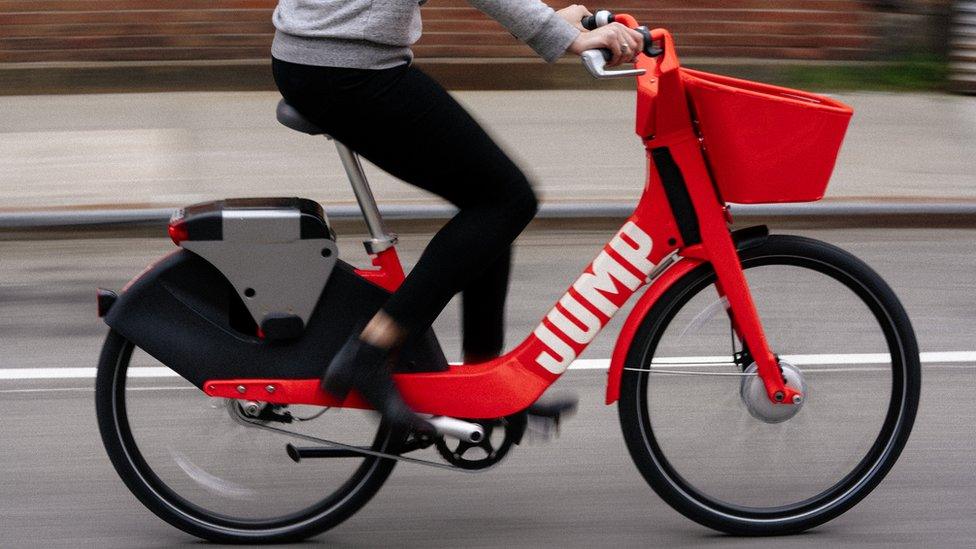Tech Tent: The taxi wars
- Published
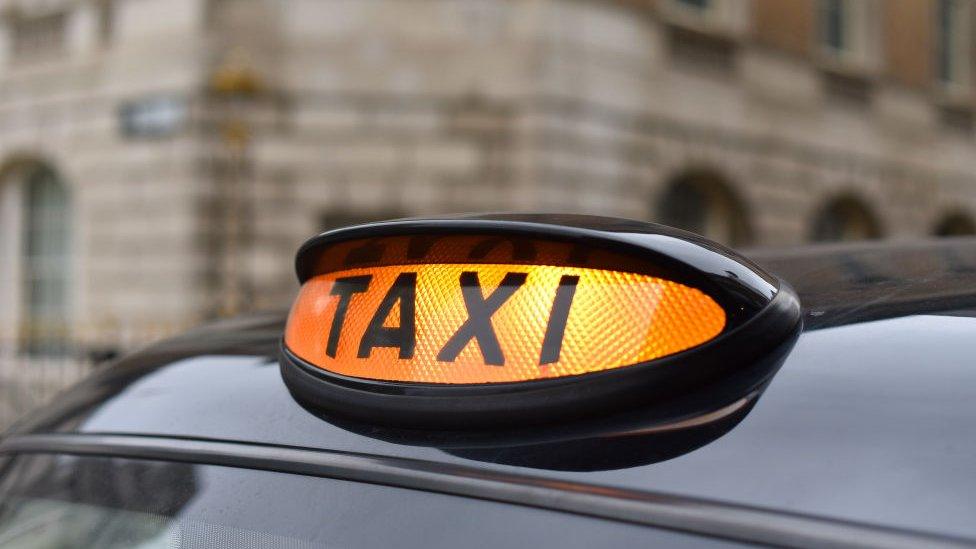
Where to, mate?
Who is going to decide how we travel around our cities - Californian tech giants or local transport businesses?
On Tech Tent we hear from the UK firm helping local taxi operators take the fight to Uber and from an American scooter firm trying to change the law in Britain.
I took a trip to Manchester this week and leaving the station, I had a number of options to get to my destination in Cheadle, on the outskirts of the city.
I could have grabbed a cab from the station rank or used the ubiquitous Uber - but instead I downloaded an app called Streetcars.
This enabled me to order a minicab from the local firm of that name and it deposited me at the headquarters of Autocab - the company that built the app for Streetcars and about 500 other local taxi firms across the UK.
Autocab has built the iGo network, which means that you can download the app in Manchester and use it with a local cab firm in Nottingham or Southampton or Bristol, too.
The company's chief executive, Safa Alkateb, says it deals with the competitive advantage Uber has had until now over local firms:
"Uber can tell you, 'Download my app and you can use it in 20 cities, or wherever you go'," he explains. "In the past, these local taxi firms had no way of doing that."

The problem, though, is that Uber is now very well known among the kind of people who use apps, certainly compared with the likes of Manchester's Streetcars, although Alkateb says we should not underestimate the power of local brands.
Autocab has been providing various services to cab firms for 20 years and was developing apps back before Uber got off the ground.
So I put to the CEO the obvious question: why wasn't this Manchester firm heading for a $120bn (£92bn) IPO and global domination and not the start-up born in San Francisco?
Safa Alkateb, who spent a career in Silicon Valley before coming home to run Autocab, had a simple answer - money.
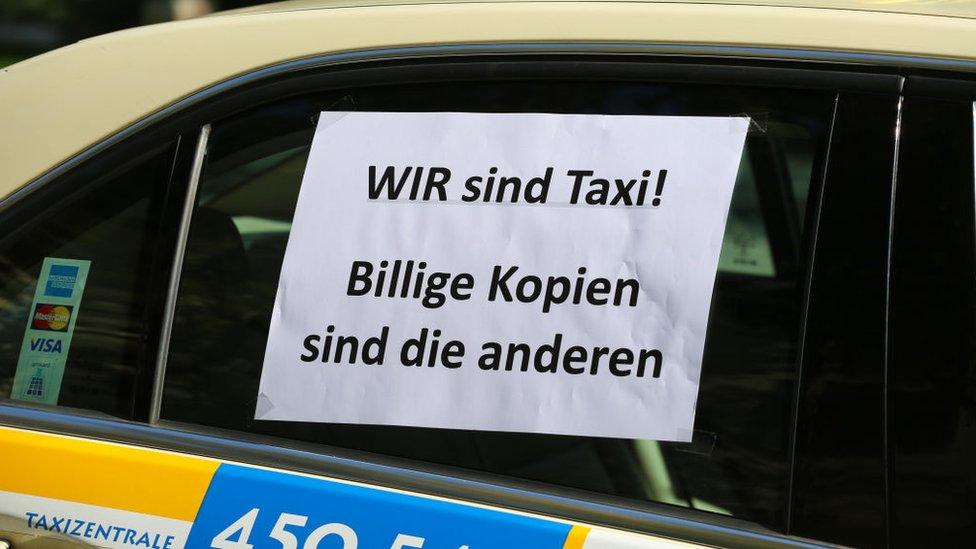
"WE are taxis. The others are cheap imitators," reads an anti-Uber protest sign in the window of a German taxi cab
"Tens of others had technology just as good as Uber that never went anywhere. The difference is Uber has been heavily financed by Wall Street and they've raised more than $13bn. We didn't have the same access to capital."
He says building Uber's app might have cost something like $30m but the rest of its huge pile of cash has gone on subsidising rides, offering discounts, effectively buying up the market.
This week another Californian company with plenty of money behind it arrived in the UK, determined to shake things up.
The electric scooter rental firm, Bird, has raised $300m at a reported valuation of $2bn and has launched its service across the United States and in a handful of European cities.
UK law does not allow this kind of scooter either on public streets or pavements but Bird has launched a pilot service in London on the private paths of the capital's Queen Elizabeth Olympic Park.
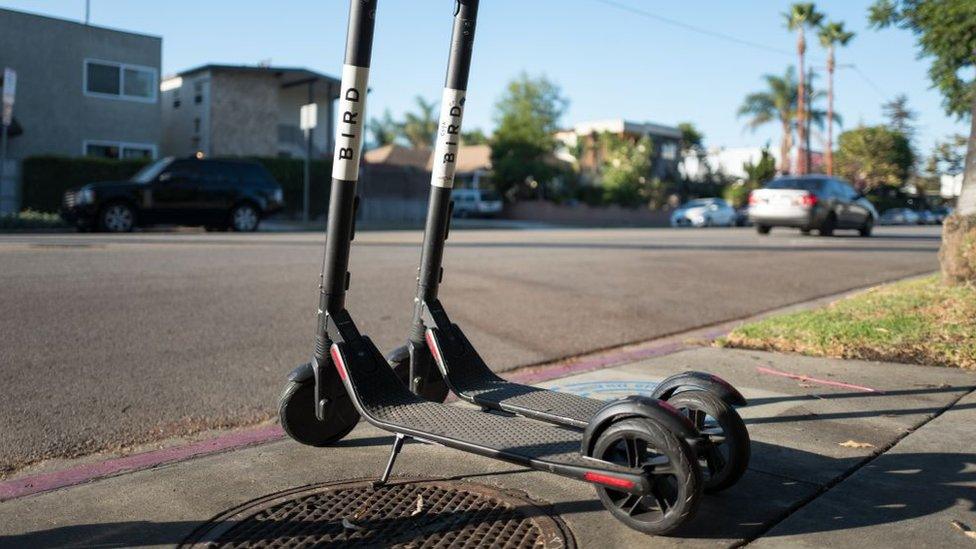
Electric scooter rental firm Bird has launched in the UK
When I say "pilot service", it is more of a campaigning tool, designed to get UK regulators and politicians to change the rules. But unlike Uber with its early "move fast and break things" approach, which saw it clash with local regulators, Bird wants to play nice.
"In Europe, every single city we've launched in we've worked hand-in-glove with government and local councils to make sure we launch with their approval," Richard Corbett, Bird's UK and Nordic chief, tells us.
As for buying up the market, he denies that this is the plan. "Gone are the days where you could just throw lots of money at it and flood the market," he says.
Unlike when Uber arrived on the scene, there is plenty of competition in cities where Bird operates, not just from other American firms, such as Lime, but from local operators.
What they all still have to prove is that hopping on a scooter and tussling with other traffic on busy city streets is a prospect that really adds up to a multibillion-dollar market.

Also on the podcast this week:
- Published9 October 2018
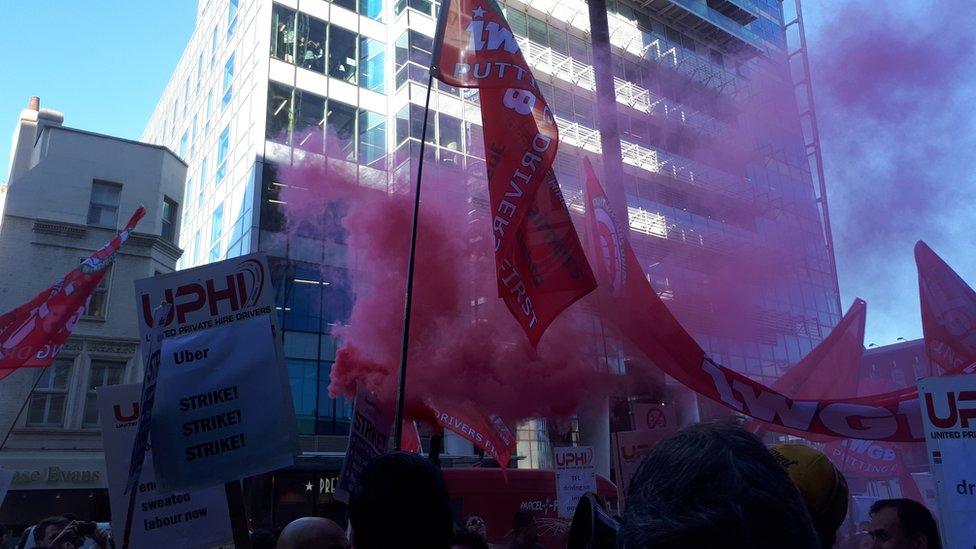
- Published27 August 2018
